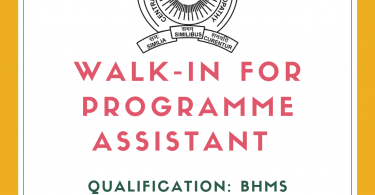
Need for Research in Homoeopathy
“Research is the constant need to explore, establish, and support Homoeopathy!”
“Evidence is a way to strengthen your Say”
Abstract
Research helps in enhancing medical care by inculcating the novel findings and ideas that are inferred. The hidden treasures of homoeopathy should be explored and presented to the scientific fraternity acceptably. Homoeopathy is a scientific science and evidence-based studies can further supplement this system with a firm standing. Research studies should be undertaken on a larger sample size at multi-centric levels for enhanced understanding and acceptability of homoeopathy. This article is just a breakthrough providing a glimpse into a few of our vital questions such as why research has to be conducted in homoeopathy?, what are the various areas where research can be undertaken in homoeopathy?, and the most vital question that we, homoeopaths always come across while conducting research is about the challenges associated with research in homoeopathy. Research is the present and the future of homoeopathy.
Keywords: Homoeopathy, evidence-based medicine, research, challenges in homoeopathy, areas for research.
Introduction
Even after several years of its discovery, Homoeopathy has not been able to establish itself strongly as an alternative to Conventional Medicine. The reason has been the lack of research in Homoeopathy. Due to the lack of evidential proof, the medical world fails to acknowledge the astonishing results produced by Homoeopath in cases where modern medicine failed to cure it. It is essential to “re-search” and “re-validate” the existing works in Homoeopathy with newer outlooks and thoughts (1).
Since, the discovery of homoeopathy, the mechanism of action of Homoeopathic drugs has always been questioned. Hence, homoeopathy has received the tag of ‘placebo therapy’. The potentiality of homoeopathy as an effective therapeutic method is usually criticised. This system has faced massive sarcasm and threats from certain factions of the medical community(2). Homoeopathy is regularly questioned for the use of ultra-highly diluted medicines, potentisation process, and the action of the ultra-highly diluted on the system. This system is engulfed in controversy regarding, “whether homoeopathy works, and if yes, how does it work?” (3). The reason has been the lack of evidence-based clinical trials of homoeopathic medicines. Lack of research has made Homoeopathy unanswerable in many instances.
For any system of medicine to be accepted, it is not sufficient that it should be only well-followed but it also needs to be well-researched. Homoeopathy too needs to be well-researched to have a scientific standing, greater acceptability, and credibility. A recent advance in homoeopathy adds further reliability and validity to the system.
For any therapeutic system to progress, the foundation must be scientific. The system needs to be scientifically validated for enhanced acceptability and credibility. More value can be added to the therapeutic system through standardized researches. Research proves to be the groundwork of enhanced medical care (4). In the present evidence-driven world, scientific research is the solution for homoeopathy to be internationally accepted and desired (2). In the 21st century, research gained popularity in the science of medicine. Homoeopathy too realised the necessity for scientific research (4). In fact, research in Homoeopathy is known since antiquity. Hahnemann himself “re-searched” into the history to verify the theory discovered by him (1).
Research is the systematic study and investigations to establish facts and arrive at new conclusions (4). There are no shortcuts in research and it adopts a series of steps. The research planning in Homoeopathy should be systematically organized and efforts should be taken to enhance health based on the evidence gathered from research (5).
Collection and analysis of evidence follow a well-drawn protocol. Ethical standards should be adhered to by the researcher. Biostatistical tools are required to arrive at a valid conclusion (6).
Objectives of research in homoeopathy
There are several scientific research trials conducted in homoeopathy that speak volumes regarding the efficacy of homoeopathy as a therapeutic system (2). Research in homoeopathy is essential to fulfill the following objectives:
• To change the perception of homoeopathy in the health care community and to create acceptance in the eyes of the general public.
• To counter those tagging homoeopathy’s positive outcomes due to the ‘placebo’ effect.
• To create confidence in homoeopathic practitioners.
• To validate ‘homoeopathic pathogenetic trials’.
• To study the subject in depth.
Areas to be explored
The homoeopathic researcher must be well aware of the key attention areas for research in homoeopathy (4). There is a vast scope of research in homoeopathy in certain areas. Some of the areas that need to be explored in homoeopathy are:-
• Clinical verification.
• Homoeopathic pathogenetic trials.
• Drug standardisation.
• Fundamental or philosophical research.
• Clinical research. (1)
Types of research in homoeopathy
There are several ways by which research can be performed in homoeopathy. Some of the types of research are:-
Classification 1
• Fundamental research.
• Drug-based research.
• Evidence-based.
• Clinical trials.
• Disease-based research.
• Literary research.
Classification 2
• Descriptive.
• Fundamental.
• Conceptual.
• Empirical.
• Analytical.
• Quantitative.
• Qualitative.
• Diagnostic. (1)
Prerequisites for research
There are certain prerequisites required to conduct a good research activity. A few of them are as follows:
• A dedicated team.
• Institutional support.
• Research funding.
• Scientific and technical awareness.
• Electronic exposure. (1)
• Establish multi-level ethical committees.
• Establish peer review homoeopathic journal.
• Develop guidelines for research.
Challenges
Several attributes make research in homoeopathy, still a challenge. Some of the research challenges in homoeopathy are:
• A limited number of research studies. (3)
• Lack of centralized database of research activities.
• Funding and resource-related challenges. (1)
• Limited resources.
• Lack of experience. (3)
• Global guidelines.
• Rational, multi-centric, large sample size studies.
• Publication bias (1)
• Reduced motivation, etc. (3)
Conclusion
Research is the present and future of homoeopathy. The research conducted in homoeopathy should be targeted towards enhancing the reliability, validity, and credibility quotient of homoeopathy. (4)
There is a need for research in homoeopathy. Been research-oriented is the need of the hour. We must all be an “active contributor” to the development of homoeopathic science. Every possible resource should be used by homoeopaths to explore novel things and make Homoeopathy, the much-sorted mode of therapeutics (1). New research in Homoeopathy is essential to add to its credibility and reliability.
References:
- Arora S; Scientific Research in Homoeopathy: An overview, requisites, current scenario, challenges, and future; Published on January 25th, 2012; (Last accessed on 2021 August, 7th); Available from: https://researchinhomoeopathy.org/scientific-research-in-homoeopathy-an-overview-requisites-current-scenario-challenges-and-future/
- Menon SG; Research in Homoeopathy: The need for awakening; Published on November 27th, 2012; (Last accessed on 2021 August, 7th); Available from: https://www.homoeobook.com/research-in-homoeopathy-the-need-for-awakening/
- Why Research in Homoeopathy; (Last accessed on 2021 August, 7th); Available from: https://researchinhomoeopathy.org/
- Kaur H; Homoeopathic Research-Understanding the Challenges; Journal of Traditional Medicine & Clinical Naturopathy; Published on December 31st, 2012 (Last accessed on 2021 August, 7th); Available from: https://www.omicsonline.org/open-access/homoeopathic-research-understanding-the-challenges-2167-1206.1000118.php?aid=10633
- Manchanda R. K.; Key areas of homoeopathic research; Published on 10th June, 2016; (Last accessed on 2021 August, 7th); Available from:https://www.ijrh.org/article.asp?issn=0974-7168;year=2016;volume=10;issue=2;spage=97;epage=100;aulast=Manchanda
- Indrayan A; Elements of medical research; Published on March, 2004; (Last accessed on 2021 August, 7th); Available from: https://pubmed.ncbi.nlm.nih.gov/15115159/
About the author:
Dr Varsha Sharma-Kapila, MD(Hom); Associate Professor, PG & PhD Guide in Dept. of Organon & Homoeopathic Philosophy at Dr. G. D Pol Foundation, YMT Homoeopathic Medical College, Navi Mumbai. She has a vast teaching experience of 21 years and professional experience of 24 years. She practices classical homoeopathy and expertise in treating renal stones, skin conditions, gastric complaints, respiratory conditions, pediatric complaints, gynaecological diseases, psychiatric conditions, recurring complaints, etc.





